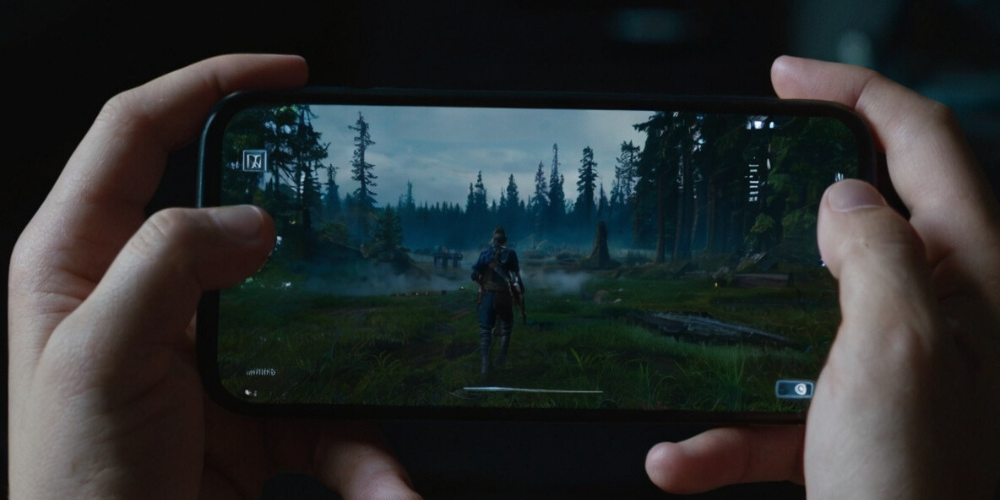The Future of Mobile Gaming: Predictions for the Next Decade
- Aug 03, 2024
- 1641

Introduction to Mobile Gaming Evolution
Mobile gaming has undergone a remarkable transformation over the past decade. What started as simple puzzle games and rudimentary interfaces has now evolved into a multi-billion dollar industry that offers immersive experiences comparable to those found on traditional consoles and PCs. The rapid advancements in smartphone technology, such as more powerful processors, enhanced graphics capabilities, and high-definition displays, have significantly contributed to this evolution. Furthermore, innovations like augmented reality and virtual reality are set to revolutionize the mobile gaming landscape, offering players deeply engaging and lifelike experiences.
This article delves into the potential trajectory of mobile gaming over the next ten years, exploring technological advancements, shifts in consumer behavior, and the evolution of game design. It will examine how 5G connectivity is expected to reduce latency and improve the overall gaming experience, enabling complex multiplayer games that were previously unfeasible on mobile platforms. Additionally, the growing integration of artificial intelligence (AI) in games will likely lead to smarter NPCs (non-player characters) and more personalized gaming experiences.
The article will also consider the impact of changing consumer preferences, such as the increasing demand for cross-platform play and the rise of mobile esports, which are gradually breaking down the barriers between mobile and other gaming platforms. Finally, the evolution of game design will be discussed, particularly how developers are innovating to create more engaging narratives, intricate worlds, and compelling characters that resonate with a diverse and growing audience.
Technological Advancements: Beyond the Hardware
The next decade will undoubtedly witness substantial and transformative technological progress that will significantly enhance mobile gaming experiences across various dimensions. Foremost among these advancements is the widespread implementation of 5G networks, which promise to deliver considerably faster and more reliable internet speeds. This leap in connectivity will facilitate seamless multiplayer experiences, drastically reducing latency and ensuring that players can engage in real-time interactions without the frustrating lags that have historically plagued mobile gaming. In addition to the advancements in network infrastructure, there will be impressive strides in processing power.
Mobile devices will become exponentially more capable, boasting powerful processors that can support high-definition graphics and intricately detailed environments. This surge in processing capability will not only improve the visual fidelity of mobile games but also enable more complex and immersive gameplay mechanics previously relegated to high-end consoles or PCs. Another significant area of growth will be in the realms of augmented reality and virtual reality integration. These technologies are set to revolutionize the way games are experienced on mobile platforms. AR will merge the digital and physical worlds, allowing games to interact with the player's real-world environment in novel and exciting ways. Similarly, VR will offer completely immersive experiences, pulling players into 360-degree virtual worlds where they can navigate, explore, and engage as if they are truly part of the game universe.
As a consequence of these technological advancements, mobile devices are poised to blur the lines between traditional console gaming and mobile gaming further. Future mobile games will likely feature high-definition graphics and stunningly detailed environments, making them nearly indistinguishable from their console counterparts. This convergence will redefine what gamers expect from mobile experiences, setting the stage for a new era where the distinction between mobile and console gaming becomes increasingly irrelevant.

The Rise of Cloud Gaming
Cloud gaming is on the verge of revolutionizing the way users access and experience mobile games. With the rising popularity of subscription services such as Google Stadia and Microsoft's xCloud, gamers are poised to enjoy top-tier, high-quality titles without the traditional requirement of investing in costly, high-end hardware. This newfound accessibility promises to democratize the gaming landscape, enabling a more diverse and expansive audience to immerse themselves in complex, graphically rich gaming worlds that were previously beyond their reach.
Additionally, the capability to play virtually anywhere—be it at home, on the go, or even in remote locations—heralds a dramatic surge in the mobile gaming market. This newfound flexibility and convenience are set to attract more users, drive increased engagement, and expand the boundaries of what mobile gaming can offer. The incorporation of cutting-edge cloud innovations promises to not only elevate the gaming landscape but also cultivate a connected and diverse network of gamers.
Increased Focus on Social and Community Features
In the coming years, we can expect mobile games to place a significantly stronger emphasis on fostering communities and facilitating social interaction among players. This evolution within the gaming industry will be characterized by the introduction and enhancement of features such as in-game voice chat, which will enable players to communicate more effectively and build stronger connections. Additionally, we will likely see a marked increase in the prevalence of collaborative missions that require players to work together towards common objectives, thereby encouraging teamwork and cooperation.
Player-driven events will also become more prominent, offering opportunities for gamers to engage in unique, user-generated content and experiences that resonate on a personal level. As game developers continue to innovate and explore new possibilities within this space, they will tap into the growing global desire for a sense of community and belonging. By creating games that not only entertain but also connect people across different cultures and geographies, developers will facilitate the formation of lasting friendships and foster teamwork on an unprecedented scale.
This shift will be driven by a blend of advanced technology and a deeper understanding of the social dynamics that make mobile gaming a compelling pastime for millions. In essence, the future of mobile gaming will be defined by its ability to bring people together, transcend physical boundaries, and unite individuals through shared virtual experiences.
The Transformation of Monetization Strategies
As mobile gaming matures, so will its monetization strategies. While in-app purchases and advertisements have been the dominant revenue streams, game developers will explore new models like tiered subscriptions, where players pay a monthly fee for exclusive content and perks. Such an approach can lead to a more sustainable gaming ecosystem, benefiting both developers and players and reducing the often frustrating element of pay-to-win models.
Emergence of Cross-Platform Gameplay
The future will likely see a dramatic rise in cross-platform gameplay, where players can interact and compete across mobile, console, and PC platforms. This shift will break down barriers between different gaming communities, creating a more unified experience. As developers increasingly focus on multiplayer features, this inclusivity will encourage a broader range of players to engage with mobile games.
Conclusion: Embracing a New Era
The coming decade promises to be an exhilarating and transformative period for the mobile gaming industry. With the relentless march of cutting-edge technology enhancing the capabilities of smartphones and tablets, players can look forward to unprecedented levels of graphically rich and dynamically engaging experiences right at their fingertips. The integration of VR and AR into mobile platforms is anticipated to open entirely new dimensions of immersive gameplay, allowing users to step into fantastical worlds with a sense of presence that was previously unimaginable. In parallel, improved community features are set to foster a more vibrant and interactive ecosystem within mobile games.
Developers are focusing on creating seamless social experiences that enable gamers to connect, cooperate, and compete with friends and strangers alike in real-time, regardless of geographic boundaries. This social connectivity will be bolstered by sophisticated matchmaking algorithms and in-game communication tools, making it easier than ever for players to find and join communities that share their interests and skill levels. Innovative monetization strategies will also play a crucial role in the evolution of mobile gaming. As the traditional pay-to-play model gives way to more diverse and player-friendly approaches, such as free-to-play with in-app purchases, subscription services, and ad-supported content, gamers will have greater flexibility in how they choose to invest in their entertainment.
These monetization methods are not just about generating revenue but also about enhancing player engagement and retention by offering value that resonates with different player preferences and lifestyles. As the boundaries between mobile, console, and PC gaming continue to dissolve, we are on the brink of a truly interconnected gaming landscape. Cross-platform play and progression will become the norm, enabling gamers to enjoy their favorite titles across multiple devices without losing progress.
This integration will not only expand the reach of mobile games but will also invite a new generation of players into the fold, creating a more inclusive and diverse gaming community. Indeed, the future of mobile gaming is a canvas of limitless possibilities, set to be richly painted by the collective creativity and innovation of developers and players alike.